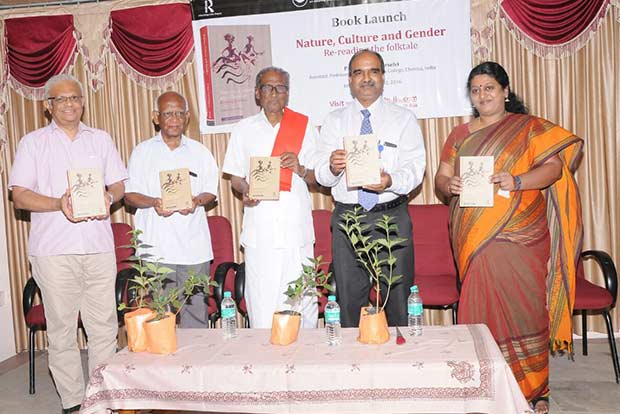Begin typing your search...
An ecofeminist’s perspective on folktales
Dr P Mary Vidya Porselvi’s book Nature, Culture and Gender: Re-reading the Folktale examines popular folklore through the eco-feminist lens, providing a new worldview to these age-old stories.

Chennai
Dr Porselvi said the folktales carry important messages for a conservative society. “In an era of ecological and economic changes, these stories of women and their relationship with nature and environment have solutions to a peaceful and sustainable life,” she said, adding that the book stemmed out of her Ph.D research on Mother Earth discourse, which is an ecofeminist approach to folktales from India.
Speaking about her work, Dr Porselvi explained, “I have identified an innovative folktale typology, which connects women with environment. It is an alternative paradigm, inspired by the beehive to analyse motifs, relationships, concerns, worldviews and consciousness of indigenous women and men who live close to nature as well as other socially marginalised groups. I have identified 12 motifs, including stories which fall under The Creator and the Created – Isis Panthea, Silence and Speech – Her-Meta, Food, Household and Sisterhood-Annamangi, Birds and Animals – Aves-Eve and Fauna-Fem, to name a few.”
Dr Porselvi pointed out that these folktales are also about raising consciousness. “There are three types of consciousness – Shakti consciousness, Ahimsa consciousness and Shanti consciousness. For example, the folktale A Flowering Tree: A Woman’s Tale, a Kannada folktale translated to English by AK Ramanujam shows the relationship between woman and tree, identified as Udi-Woman motif. The Tamil folktale Tell it to the Walls, where an old widow is ill-treated by her sons and daughters-in-law, is classified under Her-Meta, which explores women’s silences and expressions,” said this academician, who met environmentalists like Medha Patkar and others before penning this tome.
While these folktales are regarded as entertaining texts, Dr Porselvi said it is important to revisit these tales and find a new worldview to shape our current society. “The Bhil folktale called Those Clever Crows symbolises a woman’s communion with nature. The story speaks about a famine in the kingdom, which the king is unaware of because his granary is full. But the queen understood the problem, because she could speak to crows. These tales symbolise the importance of connecting with nature to solve problems and raising the level of consciousness,” she concluded.
Visit news.dtnext.in to explore our interactive epaper!
Download the DT Next app for more exciting features!
Click here for iOS
Click here for Android
Next Story



